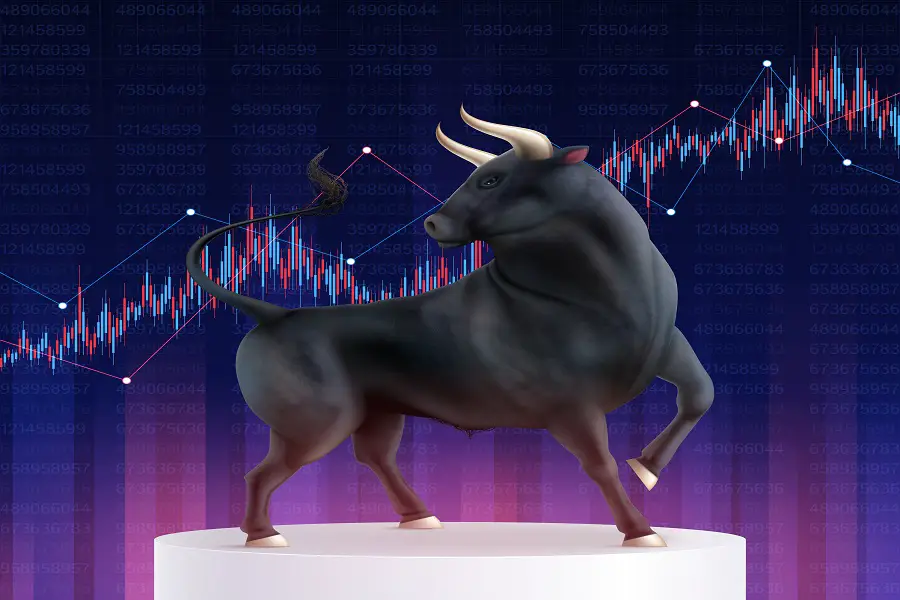
Global Investment Trends: Wall Street Shifts Billions from China to India in Historic Market Move
In a landmark move reshaping the global investment landscape, Wall Street is diverting billions of dollars from China's slowing economy to India, signaling a momentous shift after two decades of betting on China as the world's growth powerhouse. Financial behemoths such as Goldman Sachs and Morgan Stanley are leading the charge, endorsing India as the premier investment destination for the next decade.
This surge of capital towards India has set off a veritable gold rush, with the $62 billion hedge fund Marshall Wace positioning India as its most significant net long bet after the US in its flagship hedge fund. Zurich-based Vontobel Holding AG's arm has designated India as its top emerging-market holding, and Janus Henderson Group Plc is reportedly exploring fund-house acquisitions. Even traditionally conservative Japanese retail investors are redirecting their focus towards India, reducing exposure to China.
Investors are closely monitoring the diverging paths of two of Asia's economic powerhouses. India, currently the world's fastest-growing major economy, has significantly expanded its infrastructure under Prime Minister Narendra Modi's leadership, aiming to attract global capital and supply chains away from Beijing. In contrast, China is grappling with persistent economic challenges and facing increased tension with the Western-led order.
"People are interested in India for several reasons - one is simply it's not China," notes Vikas Pershad, Asian equities portfolio manager at M&G Investments in Singapore. "There's a genuine long-term growth story here."
While the appeal of India is not a new phenomenon, investors now see a market that mirrors China's trajectory in the past—a vast and dynamic economy opening up to global investment in innovative ways. Despite acknowledging challenges such as a largely poor population, expensive stock markets, and insular bond markets, investors are making the leap, viewing the risks of betting against India as outweighed by potential rewards.
Historical data shows a close correlation between India's economic growth and the value of its stock market. If the country maintains its 7% growth rate, the market size can be expected to grow at least at that rate on average. Over the past two decades, both GDP and market capitalization rose together from $500 billion to $3.5 trillion.
Capital flows are reflecting this enthusiasm. The main US exchange-traded fund buying Indian stocks received record inflows in the final quarter of 2023, while the four largest China funds experienced outflows of almost $800 million. Active bond funds have allocated 50 cents to India for every dollar pulled from China since 2022, according to EPFR data.
In mid-January, India briefly surpassed Hong Kong to become the world's fourth-largest equity market. Morgan Stanley predicts that by 2030, India's stock market will be the third-largest. Its weight in MSCI Inc.'s benchmark for developing-market equities is at an all-time high of 18%, while China's share has shrunk to its lowest on record at 24.8%.
"In terms of index weights, China would be lower and India bigger," states Mark Matthews, the Singapore-based head of Asia research at Bank Julius Baer, which launched its first-ever India fund last year. "That's the direction."
Even traditionally risk-averse Japanese retail investors are warming up to India. Five India-focused mutual funds now feature among the top 20 by inflows, with assets at the largest, Nomura Indian Stock Fund, at a four-year high.
Hedge funds, including Marshall Wace, cite India's robust growth and relative political stability as reasons for optimism, even with expensive valuations in the broader market.
India is strategically capitalizing on changing power dynamics with China, positioning itself as a potential counterweight. Strong business ties with India are increasingly seen as essential, with the country accounting for over 7% of global iPhone production and investing trillions of rupees in infrastructure upgrades.
Despite the euphoria, challenges remain. Indian equities are among the most expensive globally, and some investors are contemplating a change in strategy. Concerns about stretched valuations and Beijing's efforts to support its markets led to over $3.1 billion in outflows from local shares in January, the largest monthly total in a year.
Analysts warn of potential hurdles, including political and social challenges associated with PM Modi's social agenda, and the risk of a correction after eight consecutive years of annual gains in local shares. However, investors are still optimistic about India's long-term prospects, citing its low per capita income as a potential catalyst for multi-year expansion and new market opportunities.
India's once-insular financial markets are also opening up, with foreign ownership just above 2%. JPMorgan Chase & Co. is adding India's $1.2 trillion sovereign-bond market to its global debt index from June, potentially attracting up to $100 billion in inflows in the coming years, according to HSBC Asset Management.
India is also making strides in globalizing the rupee, albeit on a more modest scale than China's yuan expansion. Combined with the development of GIFT City—a free-market pilot project aspiring to become a global financial hub—India's potential as an investment destination echoes the opening up of Shenzhen in 1980 as a special economic zone.
Investors remain confident in India's long-term impact despite short-term uncertainties, expressing the belief that the nation is poised for substantial economic growth in the next decade, making the current volatility worthwhile.












